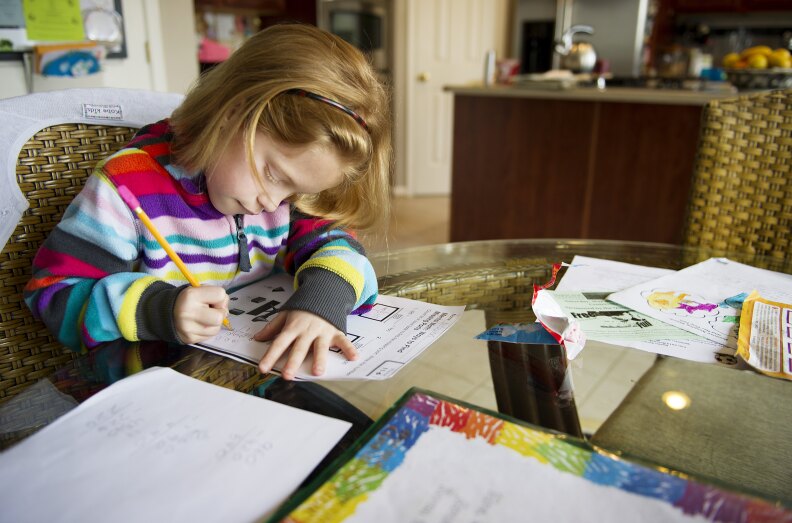Homework—is it useful for second-graders, or is their time better spent doing other things?
As the school year began, one second-grade teacher in Texas wrote a letter to parents announcing she was doing away with homework in her classroom. A parent posted a photo of the letter on Facebook, and it has since gone viral.
A Martinez spoke with Young, the teacher who wrote the letter.
Interview highlights
How did you decide to have a no-homework policy this year?
Really, it was just a reflection on my previous year and what was working in my classroom. I spent some time this summer researching what was out there—what studies had been done for children of this age, lower elementary school, and what they had to say. If something isn't working, I think it's important for us to be innovators in our classroom and make changes.
Did you have to speak to school administration about this, or was this something that you were able to decide on your own.
I actually came to the decision on my own. Of course it was discussed. However, over the summer we have been trained in "The Leader in Me" based on Steven R. Covey's "7 Habits of Highly Effective People." We've been encouraged here at Godley to be innovators here in the classroom, to make decisions that are in the best interest of our children. The administration here trusts teachers.
Was there criticism?
I wouldn't call it criticism. I would call it healthy discussion. . . Homework has a value and a place. Meaningful and engaging assignments outside of the classroom are wonderful. However, as educators, we need to take a real look at what we're sending home with the kids. Is it meaningful? Does it have a purpose? Is this real world application of what they're learning in the classroom or is it just a pencil-and-paper task?
In your letter, you say research says there is no proof that homework improves student performance. What kind of research did you do?
I did a lot of searching and a lot of looking at studies. Of course, I had no idea that this little letter would go viral and I did not cite my resources for my parents. However, anybody can do a Google search and check out what's out there. And I think we all should! And of course, there's both sides to this argument. But there's no hard evidence that lower elementary schools are making significant gains from sending home paper-and-pencil homework.
How have parents reacted?
My parents have been really excited. My parents have said that they trust me to do what's best for their child and the parents with questions or that would like extra practice for their child--I'm happy to discuss that with them. I just want an open line of communication with them.
Do you find that this is liberating for parents?
I've had a great response and the parents have been so excited for the time they get home from work, usually at 5 p.m., kids need to be in bed by 8:30 p.m. That doesn't give a whole lot of time for eating dinner as a family, reading together for enjoyment, not to check off a box saying that they read their 30 minutes for a reading log. It's important that we spend time developing other skills outside of the classroom.
*This interview has been edited for clarity
Click the blue audio player to hear the full interview.
Tell us what you think about Young's letter and homework for young elementary school students. Is it useful? Is after-school time better spent doing other things?



